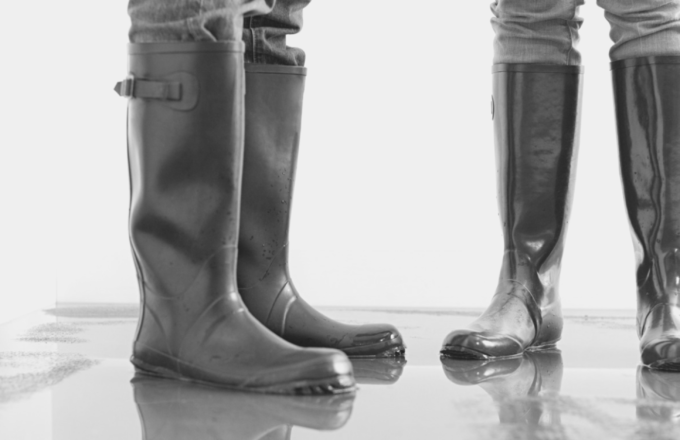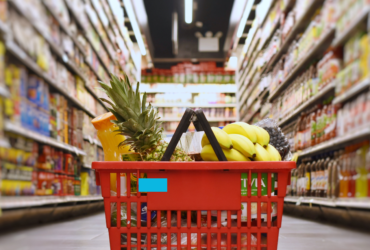
Mud Army 2.0 – practical tips to help the clean up
March 1, 2022
Over the coming days, the Mud Army 2.0 will be reactivated. Thousands of Queenslanders will be volunteering to help those who have been flooded. Please remember not to overlook your own safety during this process.
These tips were taken from various online community groups who are sharing. Here is a summary that might provide helpful.
Know your risk
There are a number of residual risks following a flood that you should be aware of when returning to your home or an area previously affected by flooding. These may include but are not limited to:
- snakes and spiders that have sought refuge in your property
- structural damage to the home
- potential contaminants
- water damaged electric circuits
- gas leaks
- slip, trip or fall hazards
- contaminated food
- materials that could be a risk to your health including asbestos
- mosquitos carrying disease
Be careful where you tread. Underneath muddy waters, no matter how deep or shallow, can lurk all sorts of dangerous things! Nails in timber, broken glass, sheered tin or metal, electrical cables, to name a few.
Wear strong foot and hand protection. Strong boots, or gumboots, and tough gloves are essential to prevent nasty injuries, possibly requiring a hospital visit and tetanus jab, at the least!
Be super careful when using electrical appliances or tools, near water. Watch out generally for electrical cables as well, to make sure they don’t cause trip hazards, or are exposed to sharp edges.
Slip and trip hazards: With slimy muddy surfaces becoming exposed as floodwaters recede or are cleaned up – the possibility of slip hazards on flood sites is huge. Awareness if more than half the key to prevention – keep your wits about you.

What to take and consider
Remember floodwaters contain sewerage so gloves, masks and disinfectant are vital for keeping yourself healthy as you help clean up.
Be respectful and be directed by the homeowner in everything you do. They need to be in control. You are there to help them.
What to gather to assist clean up:
Buckets
Pressure cleaner / Karcher / Gernie
Long extension leads
Scrubbing brush
Detergent, bleach, disinfectant
Shovels, mops, brooms
Blankets
Towels
Clothes
Dog & Cat Food
Animal crates
Pillows
Tarpaulins
Clothes pegs and foldout clothes rack
Plastic storage containers
Toilet paper
Portable fans and generators
Mosquito repellent
Bottled water
Hand sanitiser
Sun cream
- Take your camp chair, a tarp and a bucket or tub, there will be plenty of items to wash and dry.
- Take a camera or your phone and a notebook in a plastic folder to help the home owner document their damage for insurance.
- A mask or buff with perfume sprayed on it will help with the rotten smell trust me it’s going to smell plus you might be working with toxic stuff!
- Many kitchenwares can be washed so don’t throw them out.
- Be gentle, and with every move remember it is someone’s life going on the trash pile. The owner is going to be overwhelmed don’t push them – if they say no then do not override them listen to them.
- Degreaser is great as there is plenty of oil in the water there is also sewage so be sure to have your Tetanus shot up to date and any cuts are covered and cleaned really well!!!
- Many appliances can work once they’ve been dried out and checked by an electrician – don’t just throw them away.
- Good things to take with you – Gloves, garbage bags, wheelbarrows, enclosed shoes or work boots, cleaning products and water pressure cleaner + white vinegar and clove oil
- Take lots and lots of photos of brands, serial numbers of tv computers etc for insurance purposes. You can never have enough photos
- Do not shave any area of skin that may be exposed to dirt/water. Also applies to open wounds. Sunscreen! And stay hydrated!
- Don’t throw out old timber. It dries out!!
- White vinegar to kill the mould
- Photos and documents can dry out then rephotograph or scan. So much can be washed and cleaned/disinfected.
- If the power is off, your Gernies and so on won’t work unless there is a generator.
- Don’t leave things to dry on the footpath – last time Council/army came and took things thinking they were for the tip. Keep it in the yard.
- Get the carpets out asap – they will never be salvaged and will mould up quickly and cause problems.
- If you have power, start to get fans in there to help dry things out.
- Ikea bags are great for storing things that have been washed and disinfected as boxes will disintegrate.

If you cannot physically help with cleaning up
If you cannot physically help in the cleaning but want to assist in some way, you will be much appreciated by making these contributions.
- You could set up a BBQ in a clean-up street and throw some sausages on some bread.
- Deliver snacks and cold drinks in clean up areas.
- Join Baked relief and make cakes, treats, sandwiches to feed people working
- Donate anything that will make the day a little more bearable such as bottles of water, soft drink, biscuits, chips (single serve packs), fruit. Homes are not likely to have power or refrigeration to keep things cold and nowhere clean to store excess, so don’t go overboard, just a few things for one day that owners and helpers can easily grab.
You can volunteer HERE
For more updates on Mud Army 2.0 stay, updates will be available from the media and Brisbane City Council HERE


